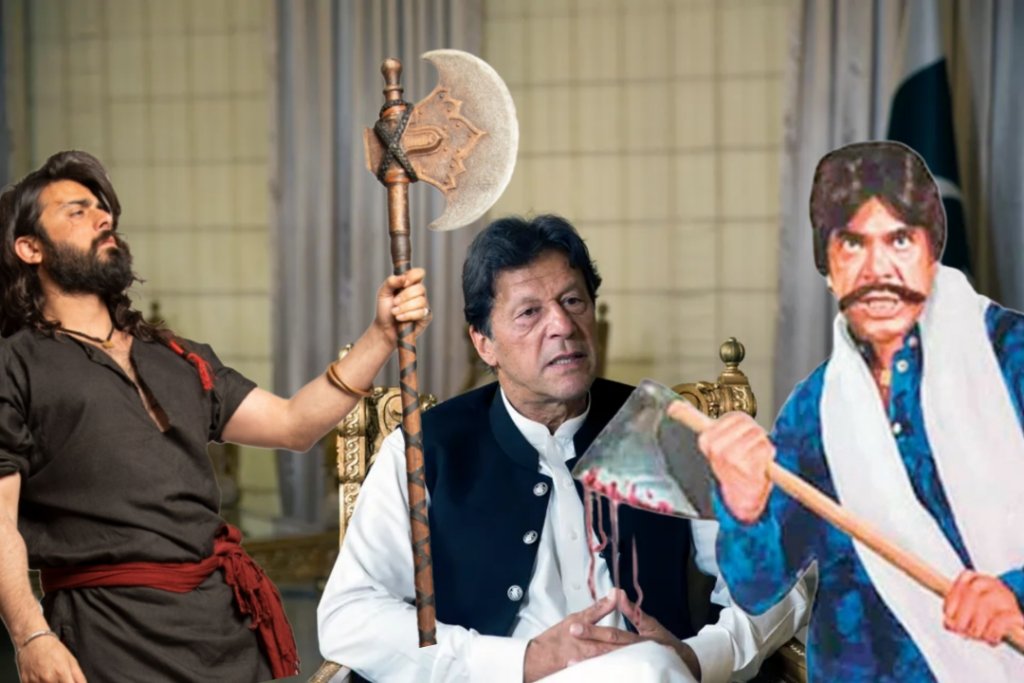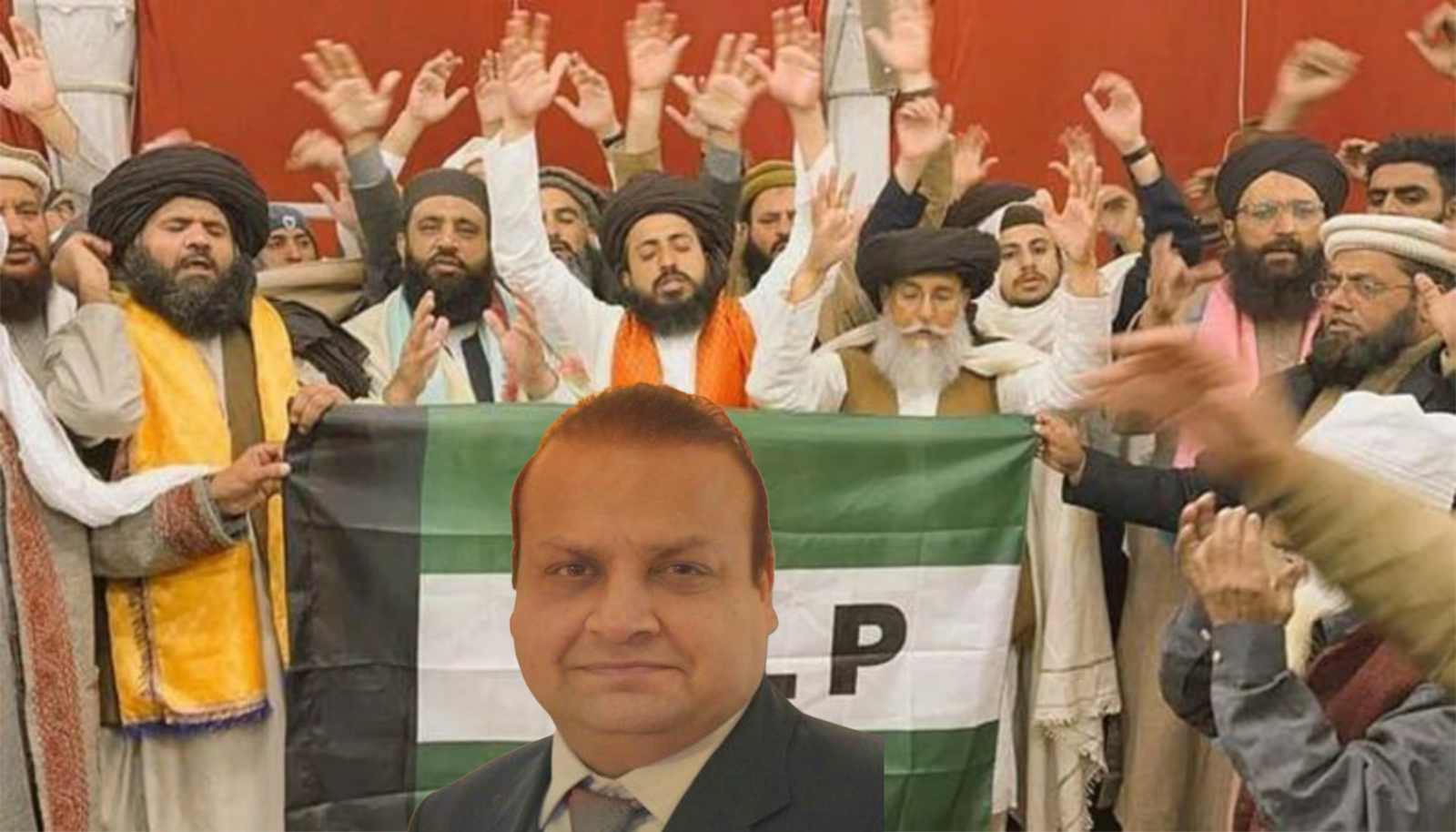
Celebrated writer and columnist Atta-ul-Haq Qasmi has compared Imran Khan’s appeal among Pakistanis to the cult following of the iconic Punjabi film character Maula Jatt, saying that a significant portion of the nation adores him with the same fervour once reserved for the legendary cinematic brawler.
In his latest column for Daily Jang, Qasmi writes that during a visit to Mumbai, he realised how deeply cultural archetypes influence charisma. “I hired a taxi, and when the driver learnt that I was from Pakistan,” he recalled, “he began loudly reciting dialogues from Maula Jatt until we reached our destination.”
Qasmi confessed that he had long resisted writing about Imran Khan, thinking, ‘Who am I to write about him?’ — until the former premier himself mentioned him in a speech, shouting angrily, ‘Oye Atta-ul-Haq Qasmi! I will not spare you!’ Qasmi joked that, like actor Saeed Murad’s character in Maula Jatt, he felt momentarily terrified and quietly slipped away.
The veteran humorist added, “Sometimes I get angry at Imran Khan; sometimes I feel affection for him — both are signs of emotional attachment.” He urged psychologists to set up a research board to study Khan’s personality, calling him “a perfect psychological case study.” Recalling a personal encounter, Qasmi wrote that Khan once attended a housewarming party he hosted in DHA Lahore. “He looked around, admired the area, and stayed for quite a while,” Qasmi said. “I thanked him, but felt that my gratitude somehow remained incomplete. Since then, I’ve never crossed paths with Bani Gala or Zaman Park — though I still wish to meet him, even in jail, just to say thanks. But the cruel system won’t allow it.”
Qasmi then offered what he described as an “unpopular truth”: “Imran Khan is not evil at heart; he simply acts impulsively.” Once, he praised Nawaz Sharif with the same intensity he later reserved for General Qamar Javed Bajwa. “Believe me,” Qasmi wrote, “this beloved leader of mine is simple and naive. If he were a shrewd politician, he wouldn’t have courted every general in the name of anti-establishment politics.”
He reminded readers that Khan once declared Bajwa “a father figure,” claiming that “the army chief is the father of the nation.” Throughout his career, Qasmi noted, Khan maintained ties with the establishment — particularly General Faiz Hameed, from whom he “benefitted continuously,” especially during the 126-day Islamabad sit-in with Tahir-ul-Qadri against the PML-N government.
According to Qasmi, the D-Chowk protests descended into indecency: “People hung their trousers on the Supreme Court’s walls, attacked PTV headquarters, and camped in shipping containers. The entire state machinery stood behind Khan, and the mess left behind was a sight to behold.”
He argued that Pakistanis’ tragedy lies in having found “a leader who was heard but didn’t know how to lead.” Despite mass popularity, Khan’s chosen path was one of confrontation and destruction. “PTI enjoyed the full support of Tahir-ul-Qadri and Faiz Hameed,” Qasmi wrote, “but when you take the wrong road to reach a general, even a sea of supporters scatters into alleys.” Khan’s biggest blunder, he said, was “trying to fight the state instead of the government.”
Qasmi denounced the vandalism of martyrs’ monuments on May 9, 2023, as a betrayal of Pakistan’s defenders. While hinting that Khan received “covert encouragement and possible assistance,” he said the former premier’s real aim was to obstruct the appointment of the next army chief and claim power himself — a misstep that pushed “the throne far beyond reach.”
“If not for one fatal flaw,” Qasmi concluded, “Imran Khan could have been a great national asset. That flaw is his self-obsession. He is in love with himself — a self-centred man who thinks first and last of Imran Khan.”
He cited Khan’s disregard for social grace: “He never attends the funerals of close friends, nor bothers to offer condolences. He’ll sip tea and eat in front of a guest without offering so much as a plate.”
Contrasting him with Nawaz Sharif, Qasmi wrote, “After Nawaz, Pakistan had found another popular leader. Nawaz may not have changed destiny, but he tried to put the country on the right track. Imran Khan, despite being Oxford-educated, based every political decision on the so-called spiritual revelations of his third wife, Bushra Bibi, alias Pinki Peerni — and the results are before us all.”








